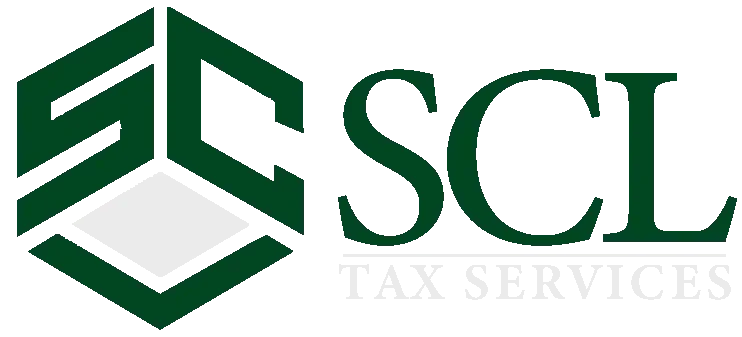Your Trusted Partner for Tax Services in the Bronx & Nearby
SCL Tax Specialists Answering Frequently Asked Questions
SCL Tax Specialists – Do You Have Any Tax Questions?
To assist you, Our tax specialists have provided answers for some of the frequently asked tax questions; however, if your question is not listed below, please feel free to contact us. We will be more than happy to help you!
Speak to us today

★★★★★
“I am very pleased with the service to have my taxes done by Stephanie. It’s my 2nd year and it’s been a pleasure and very quick. I will continue to have my taxes done at SCL Taxes by Stephanie. Great customer service, always sending referrals.”
Omayra Baquero – Testimonial
NYC, Bronx and SCL Tax Specialists Answering FAQs
Straightforward, no-surprise pricing based on your unique tax situation.
Why do we pay taxes? What is the point?
The taxes we must pay each year go toward raising money to help pay for programs and services that are authorized by the state and federal governments. This includes everything from national defense and welfare to social security, public schools, and basic infrastructure, such as highway maintenance.
What if I stop paying my taxes forever?
There are usually three circumstances that cause the IRS to take a closer look at your return.
- Forgetting income
- Claiming suspicious business expenses
- Making huge charitable contributions
What happens if I do not do the tax filing by the deadline?
If you are unable to file your taxes by the April 15th deadline, you can file for a tax extension. The IRS charges two separate types of late fees: Failure to file and failure to pay. The failure to file penalty is much higher than the failure to pay. We are talking 5% of unpaid taxes per month versus half a percent per month. A tax extension requires that you still pay 90% of your estimated taxes by the original deadline. The difference is that you have six months to work out the specifics and file the final paperwork. It is good to know that you have some wiggle room if you need it, but ultimately, you are just creating a headache for yourself if you do not pay on time.
How can I reduce my taxes?
You are going to have to do your research to determine the best tax-reducing strategy that works best for your situation; however, there are ways to get a reduction.
You can:
- -Withhold more money from your paycheck by lowering the number of exemptions you claim on your w-4. Doing so, will give you a more significant tax return, but keep in mind that you are basically giving the government an interest-free loan.
- Hire a professional tax specialist, which is something you definitely want to do if you claim unusual deductions, own a small business or have investments like real estate holdings.
Should I file jointly or separately?
Unfortunately, there is no easy answer to this question since it depends on what types of deductions you and your partner might claim, medical deductions you might have, and your income levels. For instance, you do not have to file jointly to claim the child tax credit, but the $2K credit begins to phase out at $400K for joint filers and $200K for separate filers.
I did not make much money this year. Do I still have to file?
You do not have to file an income tax return if you make less than the minimum income requirements for the tax year. The minimum is different for those 65 and older, those who file jointly and separately, and those who are claimed as a dependent.
Who qualifies as a dependent?
A dependent is anyone who lives with you other than your spouse for whom you are providing more than half of your financial support. Children are the most common dependents, but elderly parents and other relatives can qualify, even unemployed friends crashing on your couch.
What are the tax brackets?
The idea behind the tax bracket is that if you fall within a certain earnings amount, your tax has a specific rate. For example, someone who makes $50K would fall within the 25% tax bracket; however, that is only part of the story. For someone earning $50K, only the money greater than $36,250 is taxed at 25%. The rest is taxed at 15% and 10%.
Why do rich people pay less in taxes than the non-rich?
Good question! It comes down to how the money was earned. It is also a matter of investment income versus regular income. People who make money from other amounts of money, such as investors, end up paying less lower effective taxes than those who make money from a regular job. That is because investment income is taxed up to 20% for people earning more than $434,551. Regular income from a job, on the other hand, is taxed at 22% for people earning $38,701 and the rates only go up from there; so, is it fair? After all, money is money, no matter how it is earned; nevertheless, the money being taxed at a lesser rate is for someone who has enough to create investment opportunities that yield a significant return; thus, the wealthy are at an advantage. This is something billionaire investor Warren Buffet pointed out in his NY Times Op-ed piece, “Stop coddling the super-rich.”
What do we have to bring for tax preparation?
Personal data, adjustments, employment and income data, self-employment data, and itemized deductions are the required things which are consisted of various documents. You can read and gain more information by reading Tax Preparation Checklist. You can also read one of our articles which is a step-by-step guide for tax preparation. Reading that can help you learn about tax specialist advice.
In summary, take a minute to assess your financial profile. Are you a joint filer or separate filer? Do you have valid deductions and credits that you can go after? Get the tax assistance by a tax specialist in & Near Bronx, NY you need by calling SCL Tax Services serving you in and near the Bronx, Eastchester, Westchester, Mount Vernon and Yonkers, New York.
When are taxes due?
You can know about tax due dates by asking our tax specialist in & near Bronx, NY, reading Tax Filing Deadline and our Google My Business posts.
Still unsure what applies to you?
Let’s talk — we’ll walk you through it.
